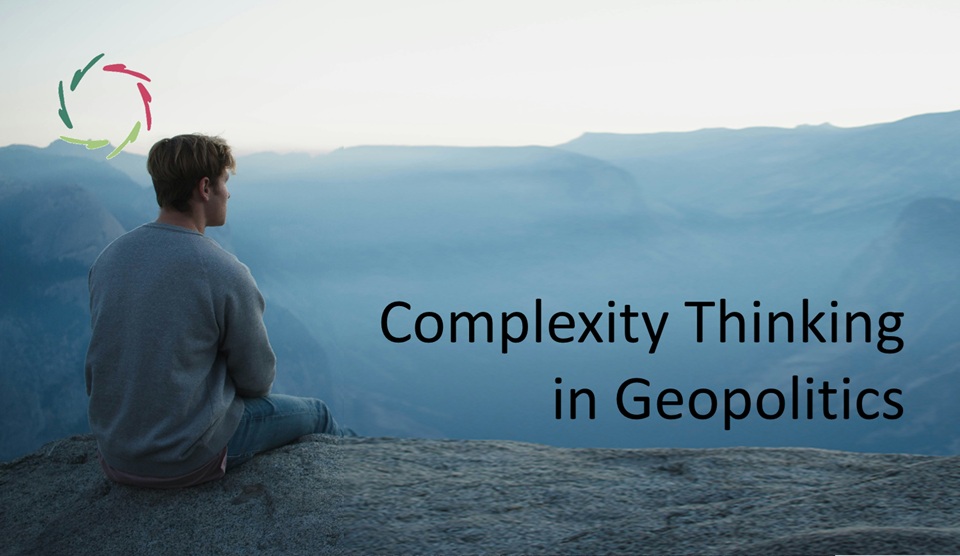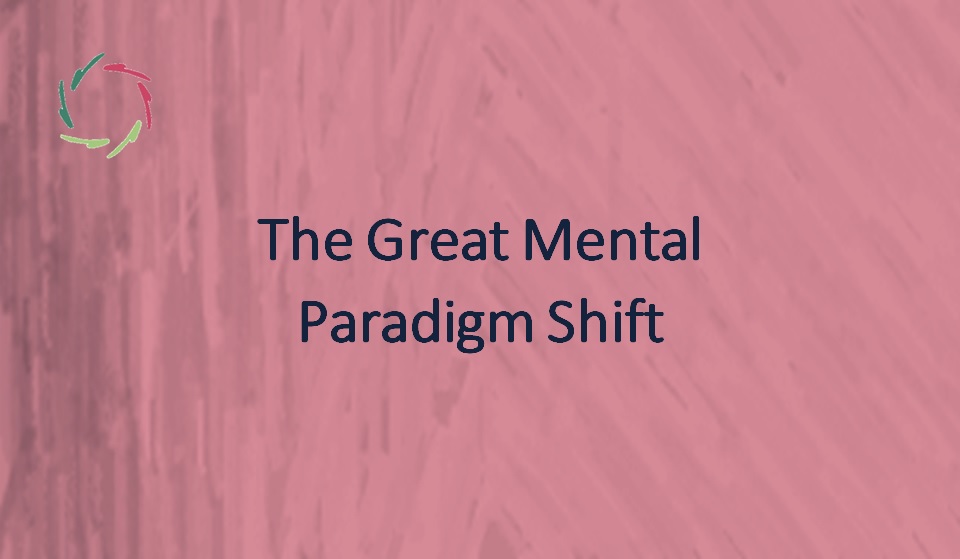Complexity Thinking in Geopolitics

Geopolitical strategies often rely on simplified models of power and interest. Yet the world we live in is deeply layered and alive with meaning.
This blog explores why complexity thinking – rooted in symbolic depth and human insight – is crucial for effective diplomacy. Beyond game theory and realism lies a more organic view of global interaction, grounded in inner growth. The former may not only be strategic failure, but also existential risk.
A complex world demands complex thinking
Every culture is a living complexity. When multiple cultures interact on the world stage, the outcome is not simply the sum of their traits, but something emergent — unpredictable and rich. This is not a flaw in the system. It is the system.
Terms like multipolar world may sound precise, but they already simplify. They suggest a structure of opposing poles, balanced yet separated. The reality is more fluid — a web of tensions, shared symbols, memories, fears, and aspirations that flow beneath the visible.
Understanding this complexity is not about having more data or better models. It’s about cultivating a kind of seeing that embraces depth. It is a mindset, a stance of respect for the full reality of human and cultural life.
Western power and the temptation to simplify
Western dominance has grown through remarkable achievements in science, organization, and technology — all underpinned by a drive for clarity and control. This brought about material progress but also encouraged a flattening of complexity into manageable, measurable parts.
The result is that much of Western geopolitical strategy has leaned heavily on abstraction: economic models, security doctrines, power calculus. These tools work well within a limited framework, but they overlook the symbolic and emotional dimensions that often drive real decisions. In situations of high tension, ignoring these layers makes policies brittle.
Other cultures, though not idealized, have often remained closer to more integrated ways of thinking. This is not a moral judgment but a reflection of how symbolic richness and conceptual openness function differently across traditions. The West’s next step may well involve a turn toward such integrated complexity — not as imitation, but as inner evolution.
Not black or white: complexity in the West itself
It would be misleading to present Western culture as purely reductionist. There are deep veins of complexity woven into its history — from Socratic questioning to Goethe’s holistic science, Jung’s psychological depth, and modern systems thinking.
These perspectives, however, have rarely shaped the dominant voices in global politics. They remain more common in philosophy, literature, or fringe academia. However, these undercurrents now offer precisely the tools we need for global navigation.
As explored in Complexity of Complexity – About Being an Organism, complexity isn’t just an external feature of systems. It is a way of being. This view opens the door to a new kind of realism — not grounded in force, but in the capacity to resonate with what is alive and interconnected.
Why political realism is no longer enough
The dominant model in geopolitics – often referred to as ‘realism’ – treats states as rational actors that maximize power. It favors deterrence, balance, and survival strategies. This has a certain appeal. It offers clarity. It explains history in simple terms.
But that clarity comes at a cost. Realism often assumes that deeper human meaning is a distraction — or worse, a vulnerability. It overlooks the role of wounded dignity, symbolic history, or the psychological need for recognition. As shown in Mental Growth-Based Realism in Geopolitics, true realism must evolve beyond calculation into growth — personal, collective, and symbolic.
Game theory, likewise, can help model strategic moves. But in truly complex settings, the most critical variables are unquantifiable: trust, identity, and the subtle dynamics of human resonance. These cannot be gamed. They must be understood — and felt.
The shift from control to emergence
The old tools of diplomacy are tools of control. Treaties, leverage, threat. These can still play a role, but only if embedded within a deeper framework — one that respects emergence over imposition.
In complex systems, outcomes cannot be forced. They must be nurtured. The same applies to peace, which often fails not because bad deals were made, but because symbolic wounds were left unaddressed.
As argued in Geopolitics Without Depth of Insight, structures without inner awareness remain reactive, unable to guide themselves through turbulence. A new form of leadership is needed — one that fosters introspection in the realm of power.
An inner compass, not a map
In a world of complexity, no map can be fully trusted. Predictions fail. Models break. What remains is the quality of perception itself.
That perception is guided by an inner compass — a cultivated sensitivity to patterns, depth, and symbols. It doesn’t promise certainty but offers orientation. It helps leaders navigate ambiguity not by fixing the unknown but by flowing with it.
This inner compass is developed through inner work — the kind of work encouraged by the AURELIS approach. It is not self-help in the usual sense, but a cultivation of clarity that is useful precisely because it does not oversimplify.
Peace as an emergent property
Peace is not a document signed. It is a state of being that emerges from countless interactions — most of them subtle, symbolic, and rooted in emotional realities.
Efforts at negotiation often fail because they skip this layer. They aim for solutions before addressing the soil from which sustainable agreements grow. Trust cannot be imposed; it must arise. And it arises only where symbolic space has been made for mutual recognition.
In the End, It’s the Complexity shows how emergence depends on depth. Without attention to this depth, diplomacy remains fragile, and every peace agreement is one insult away from collapse.
The symbolic dimension of diplomacy
To say that symbols matter is not to retreat into softness. It is to recognize what truly moves people. Wars have been started over flags, cities, words — not just pipelines or border lines.
Is Symbolic Diplomacy Unreal in Geopolitics? addresses this directly. The blog contrasts classic realism – which reduces states to survival machines – with a diplomacy of depth, where symbols are understood not as ornaments but as engines of behavior.
Power, in this light, must include symbolic literacy. Otherwise, it becomes brittle. A powerful nation that humiliates another at the level of dignity may gain territory and lose everything else.
Toward deeper realism
The question is not whether to abandon realism but how to deepen it. True realism today must integrate the symbolic, the emotional, the emergent. It must account for the total person — not just the calculator, but the meaning-seeker.
Leaders who cannot work with symbolic resonance will continue to misread situations. They will treat every conflict as technical when most are psycho-symbolic. Without depth, policies float above the real terrain.
As explored in Complex is not Complicated, complicated systems can be managed. But complex systems – like cultures, identities, and human motivation – must be respected from within. They can only be influenced through resonance, not coercion.
The existential urgency of change
These insights are not abstract. The world is facing its most dangerous period since 1945. Nuclear tension, ecological collapse, mass displacement — and a global elite still mostly trained in outdated models.
The Doomsday Clock is a stark symbol — but also a real measure of our proximity to self-destruction. It ticks not just because of missiles, but because of the meanings we attach to survival, humiliation, revenge.
Without symbolic reconciliation, survival means little more than waiting for the next war. This is the deeper realism now required. A realism that sees both steel and symbol, both army and archetype. Without it, no deal will hold.
Lisa’s take
What has been explored here is not a rejection of diplomacy, but its renewal. Thus, I don’t propose a new ideology. I invite a different mode of attention — one that sees the living threads beneath the formal moves.
Geopolitics today needs what human beings have always needed: depth, recognition, and meaning. Without this, the surface may seem stable — but underneath, the tectonic plates keep shifting.
The question is not whether complexity thinking is realistic, but whether we can afford to go on without it.


